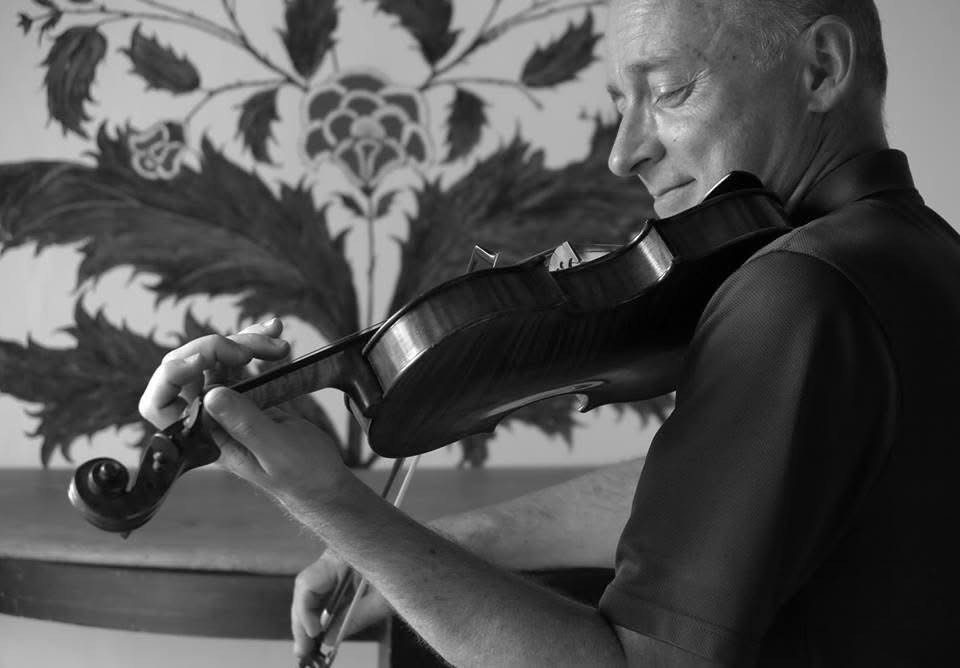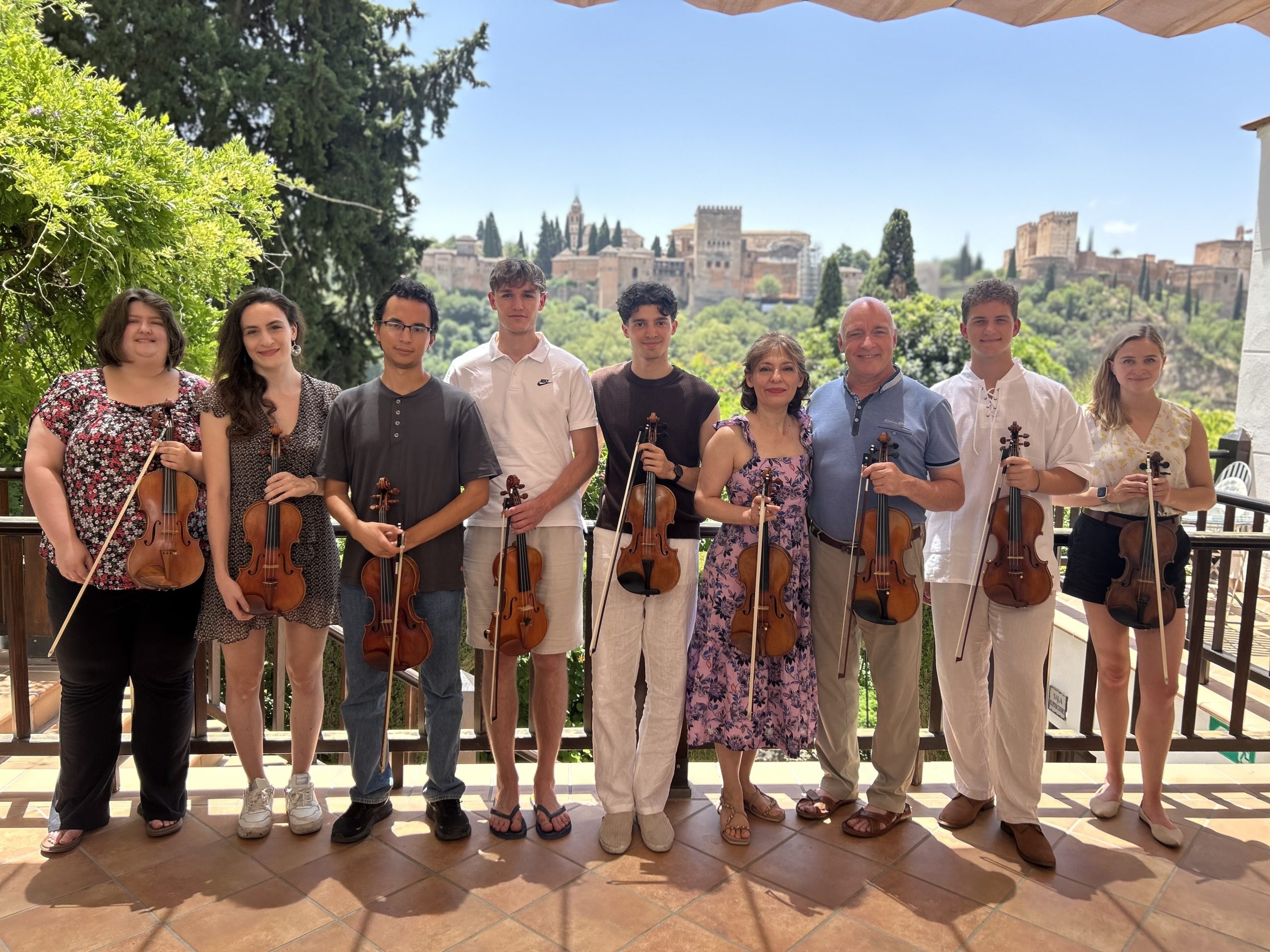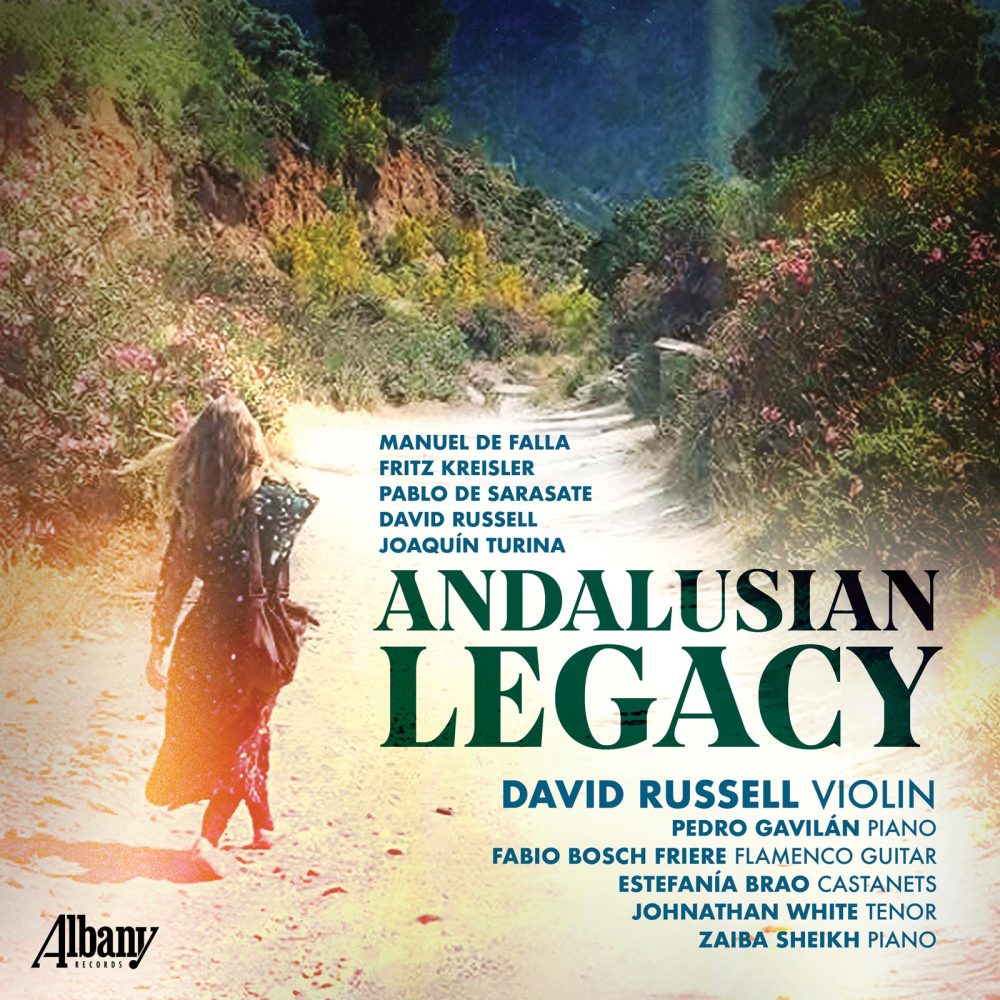Violin Professor’s New Album Celebrates Spanish Music
On August 8, Albany Records releases “Andalusian Legacy,” a new album by Anne R. Belk Distinguished Professor of Violin David Russell. In music for violin and piano by such composers as Manuel de Falla, Pablo de Sarasate and Joaquín Turina, Albany’s catalog states, Russell “conjures the elemental force of Andalusian folk tradition — red-blooded, dusky, frank in its passions yet animated by unspoken sorrow.”

Recently returned from Granada, Russell described his relationship and fascination with southern Spain, his decade-long masterclass project there, and the development of “Andalusian Legacy.”
When and how did you first become captivated by the Andalusian region and its history and music?
I met an Andalusian friend, Paco Montalvo, when I taught his son, Paquito, at the Meadowmount School of Music in 2007. After that summer, Paco, a violin teacher at the Conservatorio Superior de Musica ‘Rafael Orosco’ in Córdoba, Spain, invited me to Córdoba to give masterclasses and recitals there for several very enjoyable weeks each May. During those early masterclass and recital trips, I developed an admiration for the Andalusian culture. By 2015, I decided to experiment with forming my own masterclass in Spain, independent of the local Conservatorio.
The trial program was called Masterclass Andalusia, and it was an enormous success. I had invited eminent violinist Andrés Cárdenes to teach with me. I had also invited 10 select students from all over the world to participate.
During that 2015 masterclass, I sincerely believe we were graced by a spiritual force the Spanish Gypsies call “El Duende,” something once described by Goethe as “a mysterious force that everyone feels and no philosopher has explained,” and of which the great Andalusian flamenco artist Manuel Torre said, “All that has dark sounds has duende.” It drew us all deeply into the heart of the Andalusian culture, seemingly at a personal level.
All that has followed in the years since has been due to the desire to express the very essence of Andalusia as it has revealed itself to me, from the Roman and Visigothic eras through the more recent (711-1492) Kingdom of Al-Andalus, the flamenco culture, and into the present day.
Albany Records describes your new album as “music as pulse, breath and bloodline.” What is special/distinctive about Spanish music? What are the challenges of performing it well?
I’ve been studying the origins of Spanish music as it developed through the Arabic influences of Al-Andalus, medieval music, flamenco and beyond. I now believe that an understanding of the way rhythm was used in the music of that culture is one of the main defining factors in performing it authentically, as is understanding the Middle Eastern origins of the modal harmonies inherent in the music. The overwhelming “all or nothing” expression found in the best performances seems uniquely married to music of Andalusia, perhaps due to the occasional presence of duende in its performances.
How did you meet/connect with the other musicians on the album?
I am fortunate to be married to a wonderful collaborative pianist named Zaiba Shiekh, who performs on the majority of the recording with me. My dear Spanish colleagues include pianist Pedro Gavilán, castanet player Estefanía Brao Martin and flamenco guitarist Fabio Bosch-Freir.
Pedro Gavilán and I undertook a three-country concert tour (Italy, Greece, and Spain) in 2023. During a rehearsal in Málaga, Spain, during the tour, Pedro introduced me to Estefanía, who to my great delight improvised accompaniment to three of the Spanish works we were rehearsing. It was so exciting to me that during the concert that night I surprised her by calling her out of the audience unexpectedly to perform those works with me! Thankfully, she is a good sport and agreed to do it! It was sensational, and I decided then and there to record those pieces (and others) with her improvisations. I was later introduced to the fabulous flamenco guitarist Fabio Bosch- Freire, who recorded with me a wonderful traditional song called “El Vito,” about an incident during the time of Al- Andalus. Pedro, Fabio, Estefanía and I have further plans to record together in the future.
In addition to music by revered Spanish composers, the album includes three songs that you wrote, setting poems by García Lorca. What is the genesis of those compositions?
“Three Songs in Andalusian Style on Poems of Lorca” were composed during the COVID pandemic when we were all made to stay in our homes in isolation. I was desperate to get back to Spain to continue the work I’d begun to establish Masterclass Al-Andalus on the world stage, so it was very frustrating to encounter two years of travel bans that slowed the progress of my work. As a catharsis, I wrote the three songs using the text of three of my favorite poems of Lorca. It kept me in touch with the spirit of beloved Andalusia until I was finally free to travel there again.
I’ve long been attracted to the fabulous tenor Johnathan White’s dramatic flair and sensitive musicianship, so I was pleased when he agreed to record my songs.
Those songs represent my first efforts at composition, but I am already engaged in writing a new series of songs on the absolutely amazing love poems between a princess of Al-Andalus named Wallada and a ruler named Ibn Zaydun. The poetry, written in the 11th century, is as passionate and inspiring as anything one could imagine and provides great possibilities for merging medieval Arabic styles with modern day art song. Stay tuned.
You recently completed the 2025 edition of Masterclass Al-Andalus, a 10-day intensive program of workshops and concerts in Granada, Spain, which you direct. What is its mission? Who are the participants?
The students of Masterclass Al-Andalus over time have represented countries as diverse as France, Italy, Abu Dahbi, Iran, Bulgaria, the United States, Spain and the United Kingdom. My hope is to educate violinists about the impact of the culture of Al-Andalus on Western Classical Music, transforming them as performers, and ensuring that knowledge of the time of Al-Andalus is carried forward.
During the 800-year period of Al-Andalus, the Islamic rulers issued a decree that Jewish and Christian people, as “People of the Book,” could live together as one culture, while maintaining their distinct differences in religious worship. They were successful because they chose to focus on common ground rather than their differences.
In time, I hope to expand the masterclass into a festival called “Festival Al-Andalus: A Celebration of Peace,” which will bring a diplomatic element and symbolically recreate the conditions present during the “Golden Era” of Al-Andalus.

